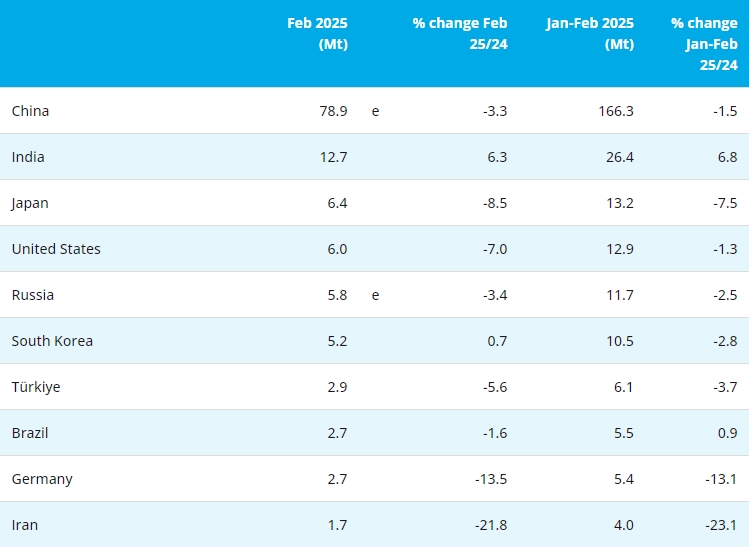[www.ferro-alloys.com] State environmental officials are investigating after elevated levels of a potentially hazardous metal were found in a landfill near the Okefenokee Swamp in south Georgia.
The metal – vanadium – was detected at a groundwater monitoring well at the Chesser Island Road Landfill in Charlton County, authorities said.
The discovery has prompted another wave of concern in south Georgia over disposal and storage of coal ash, the toxic byproduct of burning coal for electricity, The Atlanta Journal-Constitution reported.
Levels of vanadium have been “generally increasing” since 2012 at the Waste Management Inc. dump, the Georgia Environmental Protection Division wrote in a letter earlier this year.
Millions of pounds of coal ash – which also contains arsenic, chromium, lead and mercury – have been accepted at the landfill, and environmental groups fear coal ash might be to blame, the Atlanta newspaper reported.
But environmental officials don’t know the source of the vanadium.
Houston-based Waste Management, the nation’s largest landfill operator, says vanadium, a byproduct of coal-fired power plants, is permitted by the state and poses no threat to the environment.
Concerns have been surfacing nationwide – and particularly in Georgia – as residents learn more about the potential dangers of coal ash.
Georgia Power, for example, announced last week the speeded-up closure of its 29 ash ponds with some of the ash destined for south Georgia landfills.
More stringent state and federal disposal rules, as well as verified leaks from ash ponds and landfills across the country, prodded the utility and others into action.
Coal ash, if handled properly, can be safely disposed, and vanadium isn’t as harmful to health as arsenic or lead. In large quantities, though, vanadium could cause cancer or nerve damage. A rash of state, federal and legal actions targeting coal ash, many in the Southeast, underscores the potential for environmental damage.
Beryllium and other toxic metals leached from a Wayne County landfill – 50 miles from Chesser Island – into the soil and groundwater, the Atlanta newspaper previously reported. Neighbors and environmentalists worry that both landfills are hazardous to south Georgia’s health and ecological well-being.
“These big dumps like Chesser Island and Wayne County are located in one of the most fragile ecosystems in the world, with wetlands, marshes, rivers and their tributaries, so to have this kind of coal ash dumped here is very worrisome,” said Alex Kearns, the chairwoman of St. Marys Earthkeepers, an environmental nonprofit in coastal Camden County.
“We’re turning into a coal ash wastebasket for the East Coast,” Kearns said.
Vanadium, a grayish, odorless metal, is found in the air, water and soil and can remain there for a long time. Breathing vanadium, via coal ash dust, may cause chest pain or lung damage, health officials say. The Atlanta-based Agency for Toxic Substances and Disease Registry says drinking it may cause nausea, diarrhea and stomach cramps.
Jacksonville, Florida’s Northside Generating Station, which burns coal and petroleum coke mixed with limestone, makes a particularly potent ash, the Journal-Constitution reported. Some of it remains on site in a dozen ponds or landfills, according to the Southern Alliance for Clean Energy. Millions of pounds have been shipped to Chesser Island. And some was turned into a road-building material called EZBase.
Used properly, the ash helps turn dirt roads into hard-packed, easily maintained byways. Keeping ash out of landfills also saves utilities tons of money in tipping fees. Georgia officials, though, had little knowledge — or oversight — of EZBase when it was first used a decade ago.
Charlton County then bought 320,000 tons of EZBase from the Jacksonville utility, according to a memo amid several thousand pages of EPD files reviewed by the Atlanta newspaper. It was stockpiled in two large mounds near the south Georgia town of Folkston and used to harden 20 miles of county roads.
South Georgia residents complained of nausea, headaches and other maladies from wind-blown ash. The Georgia Environmental Protection Division told county officials as early as 2007 to not use EZBase, which hadn’t received an application permit. The EPD soon discovered high levels of vanadium in the stockpiles.
In November 2010, a University of Florida professor warned caution should be used when creating EZBase roads immediately adjacent to sensitive wetlands. Florida officials banned EZBase from residential areas and schools.
- [Editor:Jiang Li Juan ]



 Save
Save Print
Print Daily News
Daily News Research
Research Magazine
Magazine Company Database
Company Database Customized Database
Customized Database Conferences
Conferences Advertisement
Advertisement Trade
Trade












 Online inquiry
Online inquiry Contact
Contact

Tell Us What You Think